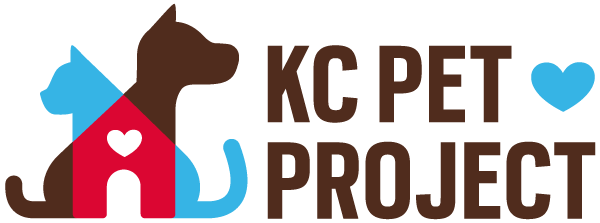Yesterday, news broke that a tiger in New York tested positive for coronavirus. This caused a lot of worry and anxiety on social media, so we wanted to share with you what we know.
KC Pet Project continues to be active in a national dialog between animal shelters, the veterinarian community, NACA (National Animal Care & Control Association), and the major pet companies and associations about all of the issues we are facing in animal welfare. With so much uncertainty surrounding Covid-19 and pets, we thought it’d be helpful to share with you what we know today.
CDC Guidance
According to the Centers for Disease Control and the World Health Organization, there is currently no evidence that people can get COVID-19 from pets. The best place for your pet is in the home they know and love. If you aren’t feeling well but are still able to provide care for your pet, please keep them at home where they feel most comfortable.
According to the American Veterinary Medical Association, out of an abundance of caution, it is recommended that if you are sick, to isolate yourself from your pet during the time of your illness and limit interaction with your pets at this time.
The biggest takeaway is that humans are the greatest risk to both humans and animals, and thus far, animals are not a risk to humans.
Can pets get Covid-19?
This weekend, there were headlines regarding the news that a tiger tested positive for Covid-19 in New York after showing symptoms of upper respiratory illness. Public officials believe that this tiger and other large cats at the zoo became infected after coming in contact with a known person who had Covid-19.
The USDA and CDC continue to monitor the situation, and the animals are all expected to recover.
According to the AVMA, “Anyone sick with COVID-19 should restrict contact with animals, out of an abundance of caution including pets, during their illness, just as they would with other people. Although there have not been reports of pets becoming sick with COVID-19 in the United States, it is still recommended that people sick with COVID-19 limit contact with animals until more information is known about the virus. If a sick person must care for a pet or be around animals, they should wash their hands before and after the interaction.”
Make a plan for your pets
Should you become sick, have to be hospitalized, or leave your home for an extended period of time, KC Pet Project recommends that you make a plan for you pet(s). This includes putting together an emergency kit and a list of resources of who can help you take care of your pets.
Pets from Covid-Positive homes at KC Pet Project
In the event that a pet from a covid-positive home should come to KC Pet Project, we will adhere to the guidelines set forth by the University of Wisconsin-Madison Shelter Medicine Program’s COVID-19 protocol which is as follows:
“Keep animals that were in contact with COVID-19 separated from the general animal population during the animal’s stay in the shelter due to the unknown risks associated with this rapidly evolving emerging infectious disease. While there is no evidence at this time that any animals, including companion animals, in the United States, might be a source of infection for humans, it is prudent to keep companion animals that came from households where a person was infected with COVID-19 separated from the general shelter population out of an abundance of caution to protect both human and animal health.”
Reduction of Intake at KC Pet Project
Keeping area shelters, including KC Pet Project, free of long-term care animals allows them to be better prepared for the onset of kitten season as well as the ongoing need to respond to cruelty, neglect and other animals who are in immediate danger or have emergency needs.
For more on what to do if you find a stray pet in Kansas City, click here.
Photo credit: Photography by Jill Renee

